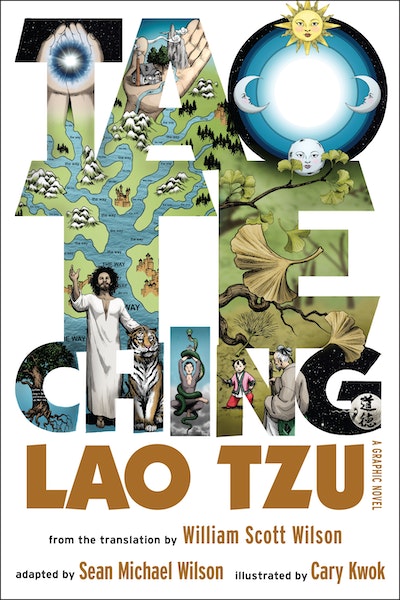

Traditional accounts say he was born as Li Er in the state of Chu in the 6th century BC during China's Spring and Autumn Period, served as the royal archivist for the Zhou court at Wangcheng (modern Luoyang), met and impressed Confucius on one occasion, and composed the Tao Te Ching in a single session before retiring into the western wilderness. Laozi is a Chinese honorific, generally translated as "the Old Master".

The content of this book: Introduction, Translation, Pinyin version, Annotation, Notes, and a Brief Analysis of the Symbol Pair for each of eighty one chapters.Laozi ( / ˈ l aʊ d z ə/, Chinese: 老子), also romanized as Lao Tzu and various other ways, was a semi-legendary ancient Chinese Taoist philosopher, credited with writing the Tao Te Ching. It will help you read Lao Tzu's book with greater understanding, re-examine its original meaning, and find out what it means to you today. You can benefit from this book whether you are a first time reader or a long time fan. His work takes the translation of the Tao Te Ching to the next level of better accuracy, coherence and contextualization, while keeping the sentences reasonably concise. And his new translation let Lao Tzu's words finally make good sense to readers. After years of research and study, he has made significant progress in three important areas and successfully corrected all the misinterpretations. Yuhui Liang, a Tao Te Ching expert, has found many misinterpretations in many English and Chinese versions of The Tao Te Ching. What can you do when you just can not make sense of them? Some of its chapters may appear confusing and difficult to understand.

While the Tao Te Ching is a famous ancient Chinese classic and has substantially influenced the lives of so many people over the centuries, it is also one of the most profound and misinterpreted spiritual and philosophical text. This is not just another English version of the Tao Te Ching, this is the new English version that makes good sense to readers for the very first time in the history.


 0 kommentar(er)
0 kommentar(er)
